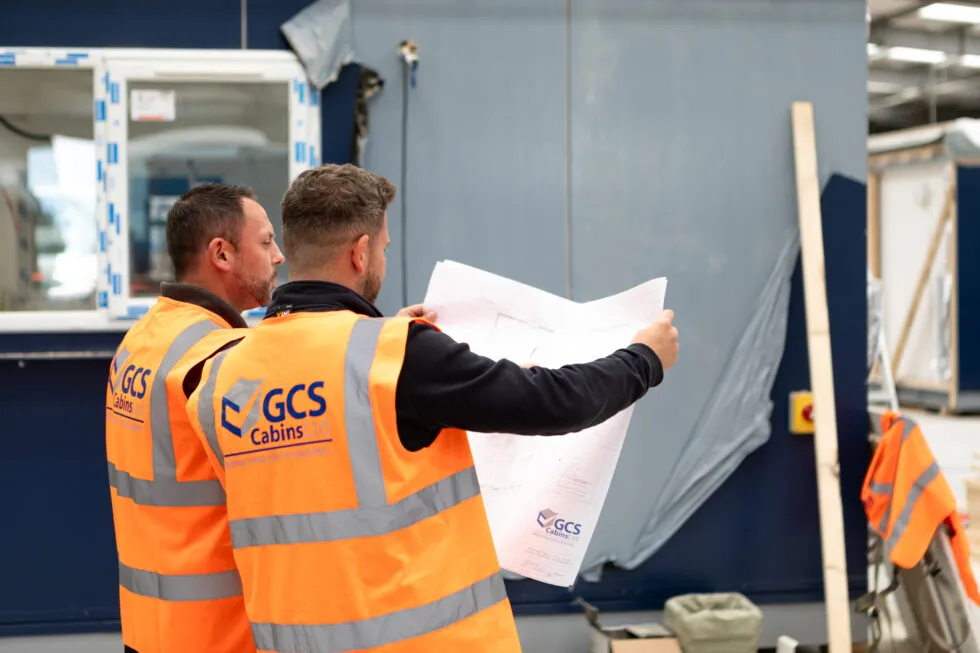Businesses and organisations are always looking for smarter, quicker, and more cost-effective ways to expand their premises. Modular buildings are a solution that not only reduces costs but also significantly cuts down on construction time. But how exactly do they achieve this?
GCS Group supplies quality modular buildings for a range of sectors. Their flexibility and cost-effective nature make them an excellent choice for businesses looking to expand or move their premises.
Faster Construction with Minimal Disruption
One of the main advantages of modular buildings is the speed of construction. Traditional building projects are often affected by delays due to weather conditions, supply chain disruptions or unforeseen site issues. Modular buildings, on the other hand, are constructed off-site in a controlled factory environment. This process allows different stages of the build to progress simultaneously – while site preparation is underway, the building itself is being manufactured.
According to a study by the UK Government’s Ministry of Housing, Communities & Local Government, modular construction can reduce build times by up to 50% compared to traditional methods. This means businesses can move into their new premises much sooner, avoiding the costly downtime associated with lengthy construction projects.
This speed is especially helpful for industries requiring urgent space solutions, such as healthcare, education, and retail. For example, schools experiencing sudden enrolment increases can install modular classrooms in a matter of weeks rather than months.
Lower Labour and Material Costs
Labour costs in the UK construction industry have been steadily rising. With modular buildings, much of the work is done off-site, reducing the need for expensive on-site labour. Skilled workers in a factory setting can produce multiple units efficiently, cutting down overall wage expenditure.
Additionally, material waste is significantly reduced in modular construction. Traditional builds often suffer from excess waste due to inaccurate ordering or inefficient use of resources. A report by WRAP (Waste & Resources Action Programme) found that modular construction can cut waste by up to 90%, making it both cost-effective and environmentally friendly.
Precise manufacturing processes ensure cost-savings are achieved by measuring and efficiently using materials, which minimises offcuts and unnecessary wastage. In contrast, traditional construction sites often see large amounts of timber, concrete and steel discarded due to miscalculations or damage.
Another positive factor is bulk purchasing. Modular building companies order materials in large quantities for multiple projects, benefiting from wholesale pricing that is not available for one-off construction projects. This results in lower per-unit costs, which ultimately benefits the end client.

Energy Efficiency and Lower Running Costs
Energy efficiency is becoming a big consideration for businesses looking to cut costs. Many modular buildings are designed with sustainable materials and high-performance insulation, which reduces the need for excessive heating or cooling.
A report by the Building Research Establishment (BRE) found that modular buildings can reduce energy consumption by 30-40% compared to traditional structures. Not only does this lower utility bills, but it also helps companies meet sustainability targets and reduce their carbon footprint.
One of the key reasons for this efficiency is precision engineering. Factory-built modules are constructed with tighter seals and better insulation, ensuring minimal heat loss. Many modular buildings also incorporate energy-efficient lighting, solar panels, and smart heating systems, further reducing operational costs.
Additionally, modular buildings can be designed to meet BREEAM (Building Research Establishment Environmental Assessment Method) standards, which measure the environmental impact of a structure.
Scalability and Flexibility
Unlike traditional buildings, modular structures are inherently flexible. Businesses often overestimate their space requirements, leading to higher initial costs. With modular buildings, expansion can be done as and when needed rather than investing in an oversized facility from the outset.
For example, if a company needs additional office space, they can add modules rather than undertaking an expensive, disruptive extension. Likewise, if a business downsizes, modular buildings can be easily relocated or repurposed – something that’s virtually impossible with a conventional structure.
Similarly, modular buildings are widely used in the construction sector, providing temporary office space for on-site teams. Once a project is completed, the units can be relocated to a new site rather than being dismantled or abandoned, making them a more cost-effective solution over multiple projects.
.jpg)
Less Disruption to Daily Operations
For businesses operating on a live site, the last thing they need is an extended construction project causing disruption. Traditional builds involve heavy machinery, loud noises, and a constant influx of workers – all of which can impact productivity.
Since modular buildings are built off-site, site disruption is kept to an absolute minimum. This is particularly advantageous for schools where uninterrupted operations are essential.
Similarly, businesses in retail and hospitality benefit from modular expansions that can be completed outside of business hours, preventing disruption to customers and revenue streams.
Enhanced Quality Control and Durability
Some businesses may worry about the durability of modular buildings compared to traditional construction. However, because modular buildings are constructed in a factory environment, quality control standards are often higher than those on a conventional building site.
Manufacturers follow strict regulations, ensuring that each module meets UK building standards. Many modular building companies use advanced manufacturing techniques to improve durability, ensuring these structures have a longevity comparable to traditional buildings.
Additionally, modular construction reduces the risk of weather-related damage during the build process. Traditional buildings exposed to rain, wind or temperature fluctuations during construction can suffer from weakened structural integrity, whereas modular units are assembled in a controlled environment before installation.
GCS Group supplies and installs modular buildings in the UK to a growing number of clients. Our expertise has been relied upon in various sectors, showing how versatile modular buildings can be.
The cost savings and efficient time savings that can be experienced on modular building projects make them a very real prospect for businesses looking for new or expanded premises. Our team are available to help design, manufacture and install quality buildings with a full turnkey package.
Contact us today to discover how we can help you save time and money with high-quality modular solutions.